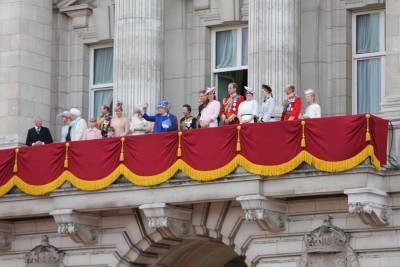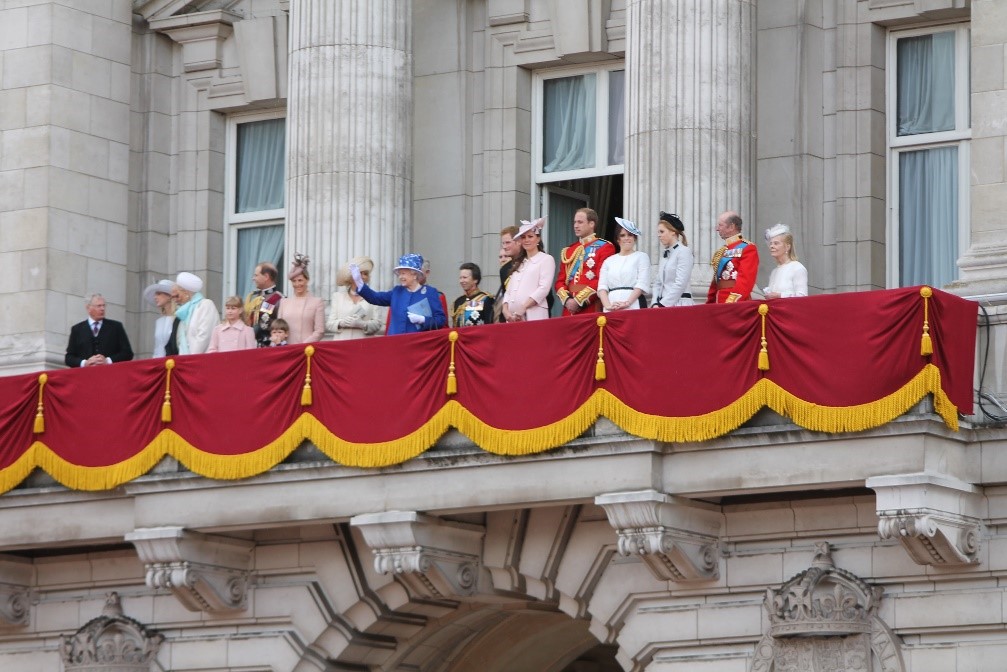
Some people go to the United Kingdom and develop a love for the royal family. I went to the U.K. and became strongly anti-monarchist.
Don’t get me wrong: the current Queen is fantastic, and the British monarchy is one of the most fascinating traditions alive today. But there’s something I find utterly ridiculous about a hereditary institution that not only represents a lasting legacy of hierarchized deference, but also the idea that one person is “born” to be the symbolic figurehead of an entire country. Not to mention that it supports a rather stratified class system in the United Kingdom. And let’s not forget that Britain was briefly a republic – and it was under Cromwell that Jews were readmitted.
Before moving to the United Kingdom, I had a rather romantic view of the British monarchy as the symbolic “head” of the Commonwealth. This view is no longer. Though I do rather like the Queen, I have also come to realize the sheer symbolism the monarchy has in an Empire long gone. I had also seen Cromwell as – despite his friendliness to Jews – a terrible mistake, reflective of the history I had learned at school. I now not only remember his readmission of Jews as the birth of the modern English Jewish community, but – despite his own tyranny – a reminder that something else is possible.
So in England I have, for the first time, become a “republican.” (Lowercase.) Now, I do not think the British monarchy will end any time soon: after all, it is supported by more than three-fourths of the population. So I do not expect to see a British Republic or other non-monarchial state – it is simply an ideal situation for me. Republicanism is not something I would call liberating, but it is something that has made me think more about what political systems I take for granted – and which ones I do not. Yes, Britain is a democracy, arguably more so than the United States. But is it the same “ideal” democratic system that it was one hundred years ago? I argued “yes” until I arrived here. Now, I’m not so sure.
Until now, I have largely kept my opinions to myself: as a foreigner who will not be staying in the U.K. after his program, I really do not have much of a say. Yet as a citizen of two republics—the United States and South Africa—who has never had to think about monarchy too hard, I do find this question easy. Luckily, I am not the only “republican” around.
The one awkward moment is at synagogue every Saturday. As in the United States, and most countries, a prayer for the head of state is recited at synagogues here. The prayer is mostly for the Queen and the Royal family, with a tag-on for “her advisers.” While everyone else nods as they recite, I feel awkward. As a foreigner and an anti-monarchist, do I say “amen”? What about the rest of the people who run the United Kingdom? I usually do say “amen,” reasoning that at the end of the day, it’s not much different from praying for a president, and anyway, the Queen also deserves happiness and safety. In any case, this awkwardness means that I’ve taken to scheduling my break from services to be right around then. Even though I am only present some of the time for the prayer, however, I have been wondering as to its theological implications.
Can Jews truly pray for a Christian monarchy? Halakhically, the answer is yes – one may even be obligated to pray for the welfare of whatever state one is in. Whether one can do so comfortably is a different question. The British monarchy, despite its tolerance towards us, was once an institution riddled with anti-Semitism. Yet today, it is simply part and parcel of British life. So despite feeling awkward about the monarchy, there is no harm done in praying for it. Now, the question of accepting a mortal monarch as the highest sovereign is one that has plagued Jews for centuries – after all, we are reminded, there is only one King of Kings. This whole experience of becoming a republican has thus reminded me that there is still one Monarch whose subject I am.
What are the implications of being subject to a divine monarchy? Obviously, this has been a topic since the days of the Bible – remember how the prophets castigated the mortal kings of Israel and Judah? However, I think for those of us living in the modern era –as a people whose population is concentrated in the two republics of Israel and the United States – at least three consequences can be thought of with relation to living in liberal democratic states today:
1. There is a certain amount to which we, as Jews, can never swear absolute loyalty to any leader. Of course this fact has been heavily abused and used by anti-Semites over the generations, but the fact remains: our devotion to God, malka melekh malkhaya, reminds us that we will have some obligations beyond those imposed by the state. Of course, we follow civil law and can show great devotion to secular states – we’ve even run a number of them – but at the end of the day our loyalty cannot be blind if it is to be Jewish. I personally think this is a good thing: we can love a country but also be critical of it, because religion forces upon us a certain critical distance.
2. Having an immortal, distant, unknowable monarch also makes it easier for us to not get so wrapped up in royalist fervor. I often wonder what will happen in the United Kingdom should the Queen die tomorrow – and realize that for two weeks the whole country will go absolutely haywire. Having an immortal monarch also helps us come to terms with the fact that all human leaders – and we, too – are mortal, and perhaps also allows us to think politically beyond one leader at a time.
Of course, having God as a king has other implications – especially for Jews in states that are undemocratic, or that are becoming more undemocratic. To be a Jew in Russia, Hungary, or even Israel today has very different implications from opposing the monarchy in England. But I think anti-monarchism has certainly provided me an interesting avenue to explore subjecthood under God: if a leader is always mortal and subordinate to the king of kings, should that leader be a hereditary monarch? Or can we do better? I think we can certainly do better.
Jonathan P. Katz is an American student studying at Oxford University in England.

